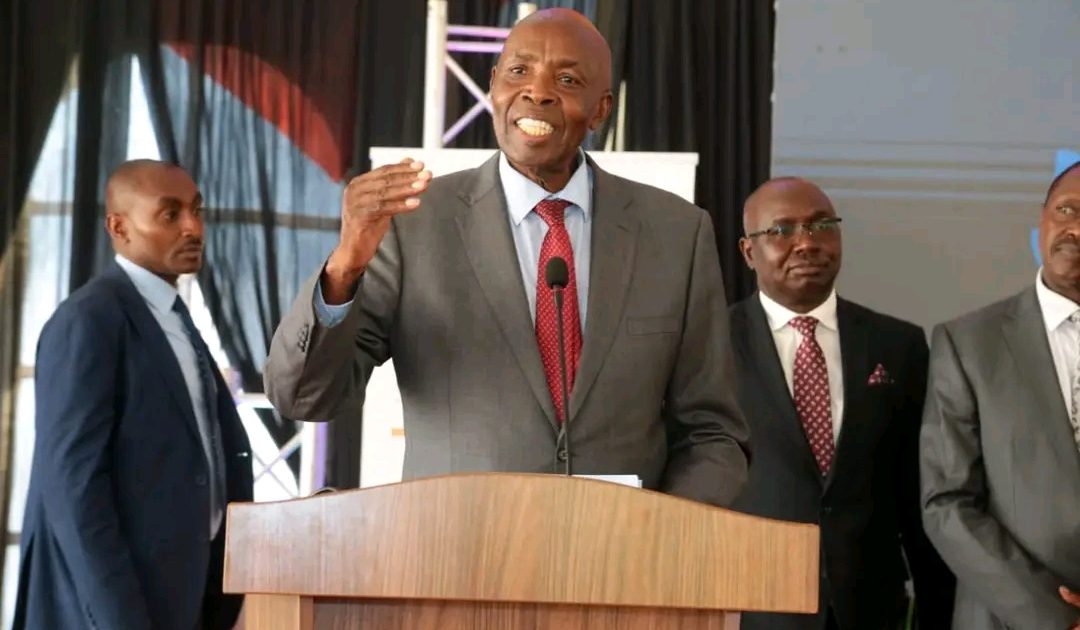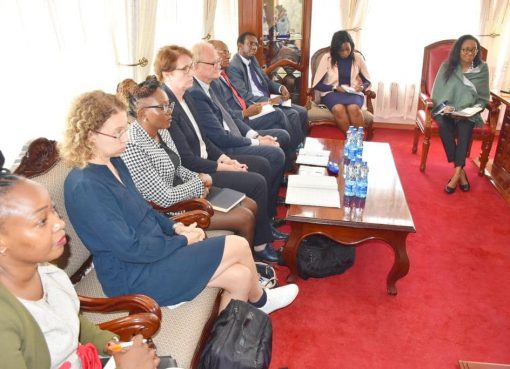Education Cabinet Secretary (CS) Ezekiel Machogu has emphasized the importance of harmonizing skills through Recognition of Prior Learning (RPL) and micro-credentials with the Competency-Based Education and Training (CBET) curriculum.
Speaking during the release of the March/July CBET results at the Kenya School of TVET in Nairobi, Machogu cited the emphasis the government has laid on the Affordable Housing Programme and its potential to create employment and provide opportunities for the youth to showcase their skills, some acquired informally.
“Through the Recognition of Prior learning, we will ensure they have the requisite credentials to facilitate their employment,” said the Cabinet Secretary.
Already experts in the education sector led by the Kenya National Qualifications Authority (KNQA) have reviewed the recognition of prior learning (RPL) policy framework and differentiated unit cost and submitted its report to the government.
The policy seeks to align with the new National Economic Agenda – the Bottom-up Economic Transformation Agenda (BETA).
The Presidential Working Party on Education Reform (PWPER), which released its report in August this year, recommended the implementation of the Recognition of Prior Learning (RPL) policy and Credit Accumulation and Transfer Systems (CATS) in Kenya.
In a report presented to President William Ruto, Prof Raphael Munavu led team proposed more awareness creation on Recognition of Prior Learning and Credit Accumulation and Transfer Systems.
According to the Kenya National Qualifications Authority (KNQA) Ag. Director General (DG)/CEO Dr, Alice Kande, the move is to provide a framework for recognition of skills through the award of certificates based on competence to better enable them to participate in various economic opportunities.
Dr. Kande noted that RPL has been adopted as a redress mechanism for past inequalities, facilitating improved employability, mobility, progression, and access within education, training, and development career paths.
Internationally, she highlighted, RPL is used as a tool for lifelong learning through the provision of access to higher education; Award of credit towards a qualification; Admissions into formal institutions of Learning; Advanced standing, and credit accumulation and transfer; for credit transfer or harmonization (national and foreign credits); For recognition of experiential learning; For upgrading of skills or qualifications and regulatory requirements of some sectors in terms of employing qualified persons.
The Ag. CEO stated that the Kenya National Qualifications Framework (KNQF) Act Section 8(1) (k) mandates the authority to promote lifelong learning and recognize the acquisition of skills obtained through different methods; formally and informally.
Further, the Authority recognizes that not all skills are acquired in classroom settings for which she cited mechanics, technicians, plumbers, and tailors with excellent skills they have acquired in the course of their work.
These skills, she posited, although contributing immensely to the country’s socio-economic development, are mostly undocumented, unappreciated, and remain neglected and the move to review the policy is to align it with global and national agendas.
“We undertook the task of realigning our policy framework. We understood that our policies should not exist in isolation but should seamlessly integrate with the broader vision of our government, aligning with the National Economic Agenda and the Bottom-Up Transformation Agenda—a vision that champions inclusivity, empowerment, and the enhancement of our nation’s human capital. We are therefore acutely aware of the global megatrends that are reshaping industries and societies worldwide,” reiterated Dr Kande.
She at the same time said that the validation of the revised draft of the RPL Policy Framework is not just a symbolic achievement but a testament to Kenya’s commitment to excellence and its unwavering dedication to the betterment of our society.
“This revised framework is not merely a document but a promise to our citizens that their skills and experiences matter, and that education is a lifelong journey that respects their unique pathways. It is a promise to our nation that we are aligning ourselves with the winds of change, embracing innovation, and fostering an environment where every citizen can thrive,” she maintained.
Also in attendance was the Principal Secretary State Department for Technical, Vocational Education and Training, Dr. Esther Thaara Muoria
By Michael Omondi





